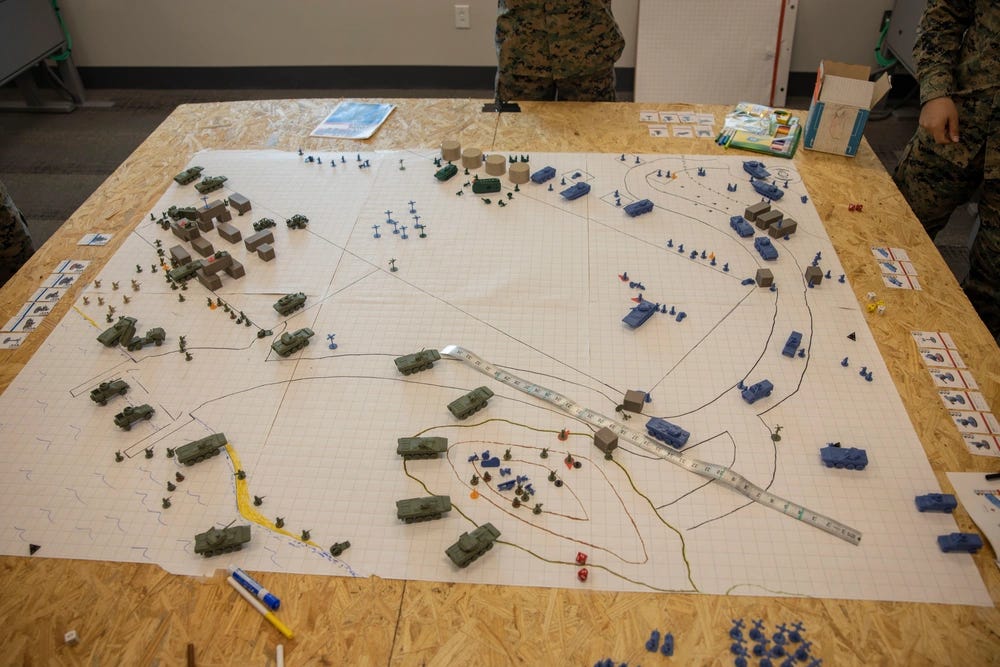Letter from the Editor
Years ago, when I was training for Marine Combatant Dive school, I swam in a civilian pool. These were aquatic thrash sessions that exceeded the standards of the adjacent senior citizen water aerobics class and, partly because I wanted to train under MCD conditions and partly because I was a dork, I wore UDT shorts. One day, I completed a series of laps to find a man standing at the end of my lane. “I used to wear a pair of shorts like that,” he said. “Cool,” I thought. “Always good to meet an old vet. Especially a frogman.” Of course, he proceeded to offer me an unsolicited account of his many Vietnam adventures with SEAL Team One, a veteran of which I knew in the area. I suggested I could connect them since I knew combat veterans of such a small unit would be excited to find out they lived so close to one another. He demurred. “He wouldn’t know me. All my records are blacked out. I spent all my time in ‘Nam doing one-man search and destroy missions. You know, the fun stuff.” I immediately regretted not drowning before he could speak to me. There was a time when the pitiful condition we now refer to as “stolen valor” made me blind with anger. Part of that may have stemmed from what seemed like the inevitable compulsion on the part of the pathetic souls compelled to perpetrate that fraud to force it upon me. A friend and mentor I admire, a career Marine who retired as a Colonel, says he could not be less concerned with “stolen valor,” that at worst it makes him happy to think someone would want to be him. I am less sanguine, though I no longer simmer for days when I meet a “Special SEAL Sniper Recon Ranger” in the grocery store. At this point, I often opt for pity. You only get one life to live proudly. What foundation you build it on may determine how long it stands. Unfortunately, manufactured and/or inflated service is a tradition that did not end with Vietnam. I think a lot of it can be laid at the feet of social media, of which I am admittedly an avid consumer. America has built a fame economy, one post at a time, in which simply being known generates equity. As a guy who writes for a living, one of the most common questions I get from publishers when offering an idea for a biography is, “What is her platform?” The question means, “How many followers do they have on Instagram? X? Facebook? TikTok?” A good starting number is 1 million. That doesn’t happen by living a normal life. Against that backdrop, we servicemembers find in our company an epidemic of wannabees, has-beens, or never-weres manufacturing, or inflating, their service. Ignoring the sheer oxymoronic reality of a “Special Ops Influencer,” fame trading offers fun, clout, money, and excitement. Sometimes it offers political connections. Thus, we come to Tim Kennedy, who acknowledges he “made public statements and gave interviews in which I unintentionally misstated aspects of my military service. Most notably, I implied directly or indirectly that I had been awarded the Bronze Star with Valor. That is not true.” If I am honest, a good apology goes a long way with me. But I am not sure how one “directly” implies receipt of a valor award “unintentionally.” Intent is...just that. Kennedy is hardly the only servicemember to inflate his service for profit. There are plenty of veterans who gave credible service who, for some reason, feel it just wasn’t enough. Some of them make up outright lies. Some of them allow other people to fill in the blanks and just never correct the record. But the problem with lying is that it is insidious. Inevitably, one lie begets another. Release enough reels, go on enough podcasts, do enough TikTok dances, and you’ll eventually contradict yourself. Just recently, I was on a podcast in which the host very kindly said of me in the introduction that I “led our forces in Afghanistan.” I mean, yeah, in the sense that I was a primary staff officer on two Afghan deployments, responsible for guiding and directing subordinates in the accomplishment of staff section tasks. But much of the leading I did in Afghanistan was through the ice cream line in the DFAC. Years earlier, in Iraq, I actually led Marines in combat. I don’t expect a civilian to intuit it, but the distinction matters because there are grifters who let the silence do the talking and seek to profit in the margins. They diminish us all. Even worse is when political leaders take up the cause of intentionally honoring actions that are, at best, unverified. South Carolina Congressman Ralph Norman has introduced a bill to honor Kennedy with a Congressional Gold Medal. I called Norman’s office to tell him he should know better. Here’s the Congressional switchboard number if you’re so inclined: (202) 224-3121. How do we change this for the better? We have to police our own. I would start with the notion that a “military influencer” should limit him or herself to military things. Counseling, conduct, and tactics are all subjects of Instagram pages I follow and from which I derive value, even as a retired guy. Being able to access, and learn, from countless firsthand sources, to interact with the person who experienced it, has tremendous value and validates social media as a tool. The problem comes when tools use social media. The best answer for me is not to seek to “make them famous” or to “flame them!” The best answer is to deny them the attention they want more than anything and let their fire burn out. You, on the other hand, deserve attention. Or at least your thoughts, art, and after actions do. Put them out there. We always need volunteer writers, editors, and advocates. Join us at lethalmindsjournal.submissions@gmail.com. Fire for Effect, Russell Worth Parker Editor in Chief - Lethal Minds Journal
Dedicated to those who serve, those who have served, and those who paid the final price for their country.
Lethal Minds is a military veteran and service member magazine, dedicated to publishing work from the military and veteran communities.
Two Grunts Inc. is proud to sponsor Lethal Minds Journal and all of their publications and endeavors. Like our name says we share a similar background to the people behind the Lethal Minds Journal, and to the many, many contributors. Just as possessing the requisite knowledge is crucial for success, equipping oneself with the appropriate tools is equally imperative. At Two Grunts Inc., we are committed to providing the necessary tools to excel in any situation that may arise. Our motto, “Purpose-Built Work Guns. Rifles made to last,” reflects our dedication to quality and longevity. With meticulous attention to manufacturing and stringent quality control measures, we ensure that each part upholds our standards from inception to the final rifle assembly. Whether you seek something for occasional training or professional deployment, our rifles cater to individuals serious about their equipment. We’re committed to supporting The Lethal Minds Journal and its readers, so if you’re interested in purchasing one of our products let us know you’re a LMJ reader and we’ll get you squared away. Stay informed. Stay deadly. -Matt Patruno USMC, 0311 (OIF) twogruntsinc.com support@twogruntsinc.com
In This Issue
Across the Force
The Logic Behind Losing: Army Interwar Miss-Steps and What the Marine Corps Can Learn Today
The Written Word
The Thing I Can’t Put Down
March, Die, or Disappear
Poetry and Art
“COUNTRY AND WESTERN WISDOM (SOME PULP)”
The Bicycle Rider
Paradigm
“Died Suddenly”
Julian Valles Photography
Across the Force
Written work on the profession of arms. Lessons learned, conversations on doctrine, and mission analysis from all ranks.
The Logic Behind Losing: Army Interwar Miss-Steps and What the Marine Corps Can Learn Today
Capt Mitchell Teefey
Hindsight remains undefeated. It’s the Monday morning quarterback of military history. When one looks back at interwar doctrine, it’s easy to poke fun at the U.S. Army for still riding horses in 1938 or building an entire force around tank destroyers that (spoiler alert) didn’t destroy many. But if we actually want to learn anything from the post-Global War on Terror fog, we should stop treating our history like a highlight reel of Skip Bayless’ bad takes. Instead, we should start breaking down the logic behind these follies.
Because similar logic, even flawed logic, is what we’re using right now to shape the Marine Corps of tomorrow.
The Last War and the Wrong Border: The Cavalry Problem
Let’s rewind. It’s the 1920s. The doughboys just got back from France, and everyone’s still coughing up trench mud. Europe is busy experimenting with tanks like a band trying to find its sound. Meanwhile, the U.S. Army is... still riding horses. Not because they were into cowboy cosplay, or romanticism, or because General “so-and-so” had a thing for stallions, but because horses made sense to the U.S. Army.
In the Army’s mind, their most likely fight would not occur in the Ardennes, but in Arizona. They were thinking about Pancho Villa, not Panzer divisions. The southwestern border was treacherous, the terrain brutal, and horses, unarmored as they were, actually worked better than the early, jalopy-like armored cars of the day. Maintenance, fuel, and range for early vehicles? Yikes. So if your job is to be ready for a war - not necessarily the next war - horses weren’t a crazy play. (1)
Major General John K. Herr, the last Chief of Cavalry, served as the staunchest defender of the horse. In 1939, the same year German panzers crushed lance-wielding Polish horse cavalry, he declared, “The cavalryman mounted on his horse possesses superior mobility, greater endurance, and better battlefield vision than any machine yet devised.” (2) You can feel the sincerity. He wasn't irrational. Rather, he remained tethered to a strategic lens shaped by the American frontier and punitive expeditions.
But here’s the plot twist: just because something makes sense right now doesn’t mean it prepares you for what’s coming next. Doctrine must hedge. You can’t let what’s most likely to occur blind you to what’s “most dangerous.”
Today, the Marine Corps is at risk of committing the same folly. We’ve spent two decades mastering counterinsurgency, uncontested sea control, and air assault raids against an enemy with little to no air defense. That’s our comfort zone. But guess what? Peer fights in littorals don’t care about your service-directed stability operations Mission Essential Task. It’s a different game with different rules. We'd better start game-planning for it.
We risk building a future force based on low-end threats because those are what we’re most familiar with. Consider the comfort with legacy amphibious doctrine: Currently, the service places too much trust in the aviation-heavy Marine Expeditionary Units (MEUs) when adversaries are fielding systems like the HQ-9B, a Chinese long range anti-air missile that can destroy Marine MV-22B Ospreys and their escorts from far beyond the horizon (3). We're not far off from the same logical fallacy that kept horses saddled.
Tank Destroyers and the Spectator Sport Problem
If the cavalry story was a classic “wrong focus” tale, the tank destroyer saga is your all-time “bad scouting report” moment.
Picture this: It’s 1940. German tanks are rolling across and rolling up Europe. Poland, France, Greece; nobody can stop the panzer blitz. U.S. planners watch mayhem from the stands, like every NFL team watching Patrick Mahomes for the first time. The planners assumed the future was tank-versus-tank shootouts. As a result, the American military established an entirely new force: tank destroyers. The concept? Mobile gun platforms would roll in like blitzing linebackers and take out enemy armor after a breakthrough. (4)
The 1941 doctrine from the Tank Destroyer Tactical and Firing Center emphasized the role of aggressive, mobile combat: “The tank destroyer must be the hunter, not the hunted.” (5) The 1941 Louisiana Maneuvers, a massive exercise featuring 472,000 troops in a force-on-force battle across Cajun country, shaped the tank destroyer ethos (6). The exercise was a full-contact reality check meant to break bad habits, test unproven gear, and evaluate the untested senior leaders of a peacetime army.
However, the flawed rules of the Louisiana Maneuvers negated the results. The rules gave anti-tank guns and tank destroyers superpowers. Umpires signified fire effectiveness by waving colored flags. Due to the cramped space of a tank, umpires usually only rode with the lead tank in the formation while the anti-tank and tank destroyers were more defensive, and thus, the umpires freer to maneuver in the fight (7). Consequently, umpires ruled enemy armor “destroyed” upon initial contact. Maneuver umpires were not calling balls and strikes, but confirming assumptions.
The wargame created a system where the concept validated itself by design. Terrifying.
Today, X feeds complete with drone videos from Ukraine and Gaze have become gospel. First-person-view drones could become the new tank destroyer. In fact, the Ukrainian Army established a new branch exclusively dedicated to drones, like the U.S. Army fielding the tank destroyer branch as an independent force (8). This approach, well-suited in a warzone close to a major domestic industrial base, will likely have limited applicability for the expeditionary Marine Corps and its partners. In research and development, we may cherry-pick wargame results that calcify pre-conceived narratives – akin to getting high on your own supply.
We must remain attuned to whether service-level training exercises like the Integrated Training Exercise (ITX) or testing new doctrine in a simulation becomes a repeat of the Louisiana Maneuvers. We must ask: Are we building honest test environments, or just programming victories?
Interwar Mindset: Be Curious, Not Conservative
The interwar period didn’t lack innovation, but initiatives proved misguided. In both the cavalry and tank destroyer cases, people took ideas and stuffed them into the wrong boxes. In the case of the cavalry: Old tech, old tactics for a war that no longer existed. In the case of the tank destroyers: New tech, new tactics for a war that evolved without them.
Sound familiar? We currently train units for deployment to the first island chain in fake towns built to look like Iraq in 2006. Simultaneously, we’re ham-fisting obsolete drones onto infantry battalions who are unable to use them reliably in training due to the all-powerful Federal Aviation Administration. Is establishing the Marine Littoral Regiments a step in the right direction? Or, is it a too purpose-built unit for a specific, geographically bound mission set rather than a tailorable solution deployable to any clime or place?
We need to be okay breaking things that technically still work. The cavalry “worked” for border patrol. Tank destroyers “worked” during service-level exercises that make ITX look like quad training. But both missed the bigger picture because nobody wanted to kill a sacred cow. Our sacred cows today? They look like battalions that can’t task-organize. They look like new units glued onto old playbooks. They look like a refusal to fully trust automation and AI until it comes with a SYSCOM stamp of approval.
Final Thought: It Starts with PME
If we want to dodge the interwar trap, it doesn’t start top down at the Pentagon or a Washington think-tank. It begins at the bottom with professional military education (PME), formal schools, unit-led brainstorming, and warfighting societies. We need to train non-commissioned officers and officers to be disciplined in their thinking and assumptions. Humility and rigor allow us to understand how bad outcomes can still be born from good intentions.
PME, when done right, can flip the script. The service should create an environment where someone can say “Why do we assume the MEU is survivable” or “How can the MLR respond to the next non-combatant evacuation operation?” without the risk of ostracism.
The cavalry officers of the 1920s and the tank destroyer cheerleaders of the 1940s weren’t idiots. They were smart people operating in a narrow decision space. Their failure resulted from lack of imagination. These patriots operated in a system that punished thinking outside the wire.
If we want to avoid being the butt of someone else’s postwar hot take in 2042, we must change the culture. We need PME that doesn’t just teach history, but weaponized lessons. Case studies and decision forcing cases from the modern battlefields aren’t bedtime stories. They are playbooks for spotting the next doctrinal blind spot our Quantico overlords overlooked. Want to win the next fight? Start by building a force of people who’ve studied all the ways we’ve lost before and aren’t afraid to say: “Let’s not do that again.”
And if we get it right? Maybe some future Captain with an SEC education doesn’t have to write this article again.
Author Bio: Captain Mitchell Teefey is an active-duty infantry officer. He currently serves as the Operations Officer for Recruiting Station Sacramento.
(1) Tedesco III, Vincent J. “Greasy Automatons and The Horsey Set: The US Calvary and Mechanization 1928-1940” The Pennsylvania State University (1995) https://tedescos.com/resources/Documents/Greasy_Automatons.pdf
(2) Seals, Robert. “In Defense of the Horse: Major General John K. Herr, Chief of Calvary” The Long Riders Guild Academic Foundation. (2009). https://www.lrgaf.org/military/john-herr.htm#_ftn3
(3) Pierce, Logan. “HQ-9 Missile System: China’s Answer to Long Range Air Defense” Defense Feeds. (2025). https://defensefeeds.com/military-tech/army/air-defense-systems/hq-9-missile-system/
(4) Gabel, Christopher R. “Seek, Strike, and Destroy: US Army Tank Destroyer Doctrine in World War II” Combat Studies Institute. (1985) https://apps.dtic.mil/sti/tr/pdf/ADA532138.pdf
(5) “FM 18-5. Tank Destroyer Field Manual” War Department. (1942) https://archive.org/details/Fm18-5/mode/2up
(6) Moran, Richard. “The Louisiana Maneuvers 1940-41: The Anvil on Which the United States Army was Shaped” American Association for State and Local History. (2012) https://safe.menlosecurity.com/doc/docview/viewer/docN45AC446980966db05551003b0654988780a243f9db0329b2f24d0c0c359680ab19d2cb685c36
(7) “FM 105-5. Umpire Manual” War Department. (1942) https://safe.menlosecurity.com/doc/docview/viewer/docN45AC446980969560fd8bfc0351817276558699c3b1db22d3ea8f8e1deda4f051ac013cbc23c2
(8) Milasauskas, Tomas; Jaskunas, Liudvikas. “FPV Drones in Ukraine are Changing Modern Warfare” Atlantic Council. (2024) https://www.atlanticcouncil.org/blogs/ukrainealert/fpv-drones-in-ukraine-are-changing-modern-warfare/
The Written Word
Fiction and Nonfiction written by servicemen and veterans.
The Thing I Can’t Put Down
Tyson Stahl
I was twelve years old when I joined my first band; tall, skinny, marginally athletic, and recently cut from the football team. It was 1995, and I convinced my parents to let me do yard work to pay for a nameless $90 pawn shop bass guitar on layaway. I taught myself the bass by listening to Black Sabbath and the Descendents. Sean probably had no business singing, but he did because it was his band and he had the look. He could barely play the guitar, but I could, so I taught him how to play power chords. But, it was Jodie who put the time in to make him a guitar player. Jodie was from another world.
Jodie learned to play the drums listening to Zeppelin and Nirvana – his drums were huge and he played them even bigger. This lanky fourteen-year-old kid with acne and long straight black hair cut at a line just below his chin had just played Led Zeppelin’s “Moby Dick” at the middle school talent show, and no one can convince me to this day that he didn’t replicate it note for massive note, exactly as hammered out by Bonzo himself. Our first practice was unforgettable, crammed into his bedroom in a house built in the 1920’s, thick glass windows resonating with every poorly tuned note of our guitars. It started to snow as we penned our first song, “Groovy Purple Hair.” I still have the karaoke machine recording of all fifty times we played it. From that point on, we were a band and we let everyone know it.
School became an afterthought, we hung out with the edgy eighth-grade boys and girls whose brothers bought us cigarettes, and we played our own cacophonous racket for them every Friday afternoon right up until I got myself sent off to military school the next summer. But we still found a way to make music and be in a band. We practiced when I was home, we wrote, and finally, we scraped together enough money to go into the studio a year later and record 10 songs over two days. When it was time to “tour” with our music, we launched some cassette tapes out to a few local bars and lied about our ages so they would book us. My father chauffeured us to our first gig in a gold Chevy Astro van two hours west of town, where we played for seven people – four of whom worked at the bar and were anxious to get us the hell out of there for fear of getting shut down.
As it goes with bands, we inevitably split up. Sean dropped out of school. Jodie and I started our new project, where I moved to the guitar and sang.
I was fifteen and Jodie was sixteen. We were on the wrestling team, and after a particularly bad day at practice, Jodie’s girlfriend called me to let me know that he was in the hospital and that he was going to have to stay the night. I turned sixteen the next day and woke up to a call from our wrestling coach, “Jodie has cancer and they have said he has seventy-two hours to live. He’s moving into the ICU, and the family would like you to be here.” My parents knew something was wrong even before I choked out the words. My dad put me in the tour van and we drove to Duke Hospital. I walked into the ICU and saw Jodie, my best friend, who was terrified of needles, surrounded by doctors with at least fifty of them to draw blood, give fluids, antibiotics, whatever it was. We locked eyes and then I had to just go…wait.
But in the spirit of Animal from the Muppets hammering away at his drums like it might be the last time, Jodie pulled out of it. We wrote more music, played more shows, and I got recruited to play college football. He graduated and went on to North Carolina State University, his cancer in a miraculous remission. That summer, I was about to commit as a walk-on at NC State so we could keep playing, but his cancer came back.
Jodie died at home on a Thursday night. I stood next to him in his favorite La-Z-Boy with the very same people who were with him in the hospital and watched him take his last breath. I stared at his face and witnessed death for the very first time. I was two weeks away from turning eighteen.
That February, I committed to playing football at the Naval Academy, and that September, two planes were flown into the World Trade Center, a third into the Pentagon, and a fourth was wrestled to the ground by its heroic passengers in Shanksville, PA. The next three and a half years were football and praying that my brother and my teammates who made their way to our war were ok. But not before I started a band with my teammates.
I played the drums in Oversize Load, a cover band that played three-hour sets on Saturday nights after winning football games. Beer was the best medicine for the bumps and bruises. In 2005, I moved on to the Marine Corps. For eleven years, I took a guitar with me on deployments, even if I never played a note. I would always be a guitar player and my friends would always know about my band. In 2016, I left the Marines. I still wonder why I did, but I did.
Then one day, a friend sent me an Instagram post by a former Army Ranger named Brad who was starting a band with a legend named Jason Everman – the guy who played in Nirvana and Soundgarden before he joined the Army and became a Green Beret. I reached out to Brad and told him my story.
“Do you still play the bass?”
“I do.”
“Is that something you’d want to do for us?”
“Hell yeah.”
March, Die, or Disappear
Benjamin Van Horrick
Riley had always wanted a basset hound.
He woke up to one licking his face.
But Riley didn’t own this basset hound or the couch he was sleeping on.
The bar crawl turned into a haze.
He’d wandered into what he believed was his home.
Within five minutes, the rightful owner of the couch and the basset hound would discover Riley, then panic, lock herself in her room, and call the police.
Riley got stuffed into a cop car with the basset hound’s slobber still on his face.
Then came the mugshot.
Riley smirked when he was nervous, a tendency that didn’t serve him well in foster care, at OCS, or mugshots.
And the Jacksonville Daily News story.
Next, the infamy. Snickers at the gym. Stares at the commissary.
The group chats that once buzzed went silent. The banter in the office trailed off. Jokes followed.
“Riley, if you do a good job, we’ll find you a couch.”
Soon Lt. Barnes, once known as Riles, became The Sofa King.
Sofa King Drunk
Sofa King Tired
Sofa King Stupid
The solvent of shame soon dissolved the bonds of brotherhood promised by the Corps.
Riley withdrew. Moving from one group home to another, he relied on himself.
When he finally got a family—his platoon—it was taken away, and Riley reverted to his factory settings.
At least they could have mentioned the basset hound.
On Monday morning, First Lieutenant Riley Jameson Barnes stood before the Division CG explaining himself—or trying to.
Riley smirked again. First, foster parents, drill instructors, and now a general.
“Lt Barnes, you have disgraced this Division.”
For six months, Riley drifted through hearings, appointments, and paperwork, as the Corps’ disapproval weighed on him. Each snicker at the gym cut deeper, until Paris seemed like the only exit.
Six months later— after the NJP, the infamy, and his unceremonious discharge — at the Charlotte International Airport, Riley finished his second whiskey at the Admiral’s Club.
Riley sweet-talked the attendant for a free pass to the lounge.
“You on leave, Marine?”
“Sure,” Riley replied as he smirked.
The worn Alice Pack held everything Riley believed he needed for his new life—a one-way ticket to Paris, his passport, journal, French-English dictionary, and detailed directions to the Legion recruiting office.
The whiskey stung as CNN played in the background, while couples on vacation and businessmen on work trips retreated to their phones, magazines, and newspapers.
Riles enjoyed his own company.
The sterile tranquility of the Admiral’s Club was interrupted by a booming voice.
“RILES?!”
“Dominguez?”
“Donut?”
Sergeant Juan “Donut” Dominguez, was one of Riley’s squad leaders, who taught him everything there was to know about machine guns.
Like Riley’s, Donut’s career met an unfortunate end. It happened on a scale, not a sofa.
Donut was fat.
The Marine Corps hated fatness like it hated sloppiness, laziness, dishonor, and officers falling asleep on sofas they didn’t own.
Donut couldn’t shed the weight. Riles helped Donut as best he could, shielding him from the scale and highlighting his squad leader and machine gunner skills.
Riley even fudged taping, the outdated method for measuring body fat.
Riles would tell his company commander and First Sergeant, “Look, we're selling jeans here or stacking bodies.”
Riles didn’t win. Donut was processed for separation. At that point, the Navy Com with V from Ramadi didn't mean anything.
Standards were standards.
The platoon held Donut’s going-away dinner at the Golden Corral.
The Sofa King and Donut embraced.
“Good to see ya, Donut.”
“Riles, it's been too long.”
“What are you doing here?”
“Free snacks.”
“You never change, my man.”
“What are you doing here?”
“Got a flight.”
“Where to?”
“Eh, Paris. How about you?”
“Wee wee France. Me: Williston.”
“Williston?”
“North Dakota. Yeah, Bakken.”
“Bakken?”
“Yeah–an oil formation. It’s a boom town—big cash for knock-around guys like us. Remember Bone Saw? He’s up there. Oil fields don’t care about what a scale says.”
“I hope they’ve got a Carl’s Jr. for you.”
“Good one, Riles.”
“Why are you going to France?”
“Look, I’m heading to the Legion.”
“What?”
“Yeah. I got bounced from the Corps and now hitting the reset button.”
“This isn’t Nintendo. You don’t hit the reset button.”
“Watch me.”
“Riles, this will blow over.”
“Donut, I am a joke.”
“Yeah, man, so am I.”
“We both want fresh starts, so here we are.”
“So, is this goodbye, Riles?”
“How about this? Remember when we deployed, Donut— it’s not goodbye, it's see you later.”
“You believe that?”
“Yeah. Yeah, I do.”
The call went out for Riley's flight.
Riles got up, put his pack on, and gave Donut a bear hug.
“See you later, Riles.”
“See ya, Donut.”
Riley put on his Alice pack, the weight of his past now lighter with Donut’s words.
Paris waited, and maybe, a new Riles.
Poetry and Art
Poetry and art from the warfighting community.
“COUNTRY AND WESTERN WISDOM (SOME PULP)” Jack Lucas I’ve heard it said “a man’s gotta be 10% smarter than the tools he’s workin with” Johnny Cash said that a man got to be tougher than the timber he’s cuttin Man’s gotta be kinder than the love he was shown as a kid And have enough spirit to live the dream he’s been huntin If you ever see a turtle upon a fence post He ain’t get there hisself If you ever receive human decency Give as much as you can to someone else And if you got a song Sing it as long As you’ve got the lungs to do so There comes a day when voices get taken away And words get stuck in throats But don’t you worry about the snakes you can see Don’t worry about the rattlers in the road It’s the poison that lays poised behind a brothers tongue That can drive you from your home Dirty words are better than dirty windshields And if you’re already tearin down the motor might as well replace the seals Don’t let nobody take your opinion and just toss it aside But it’s alright to consider That someone else may be right And don’t sit down til your ass gets sore Life ain’t about money but it’s important to work It’s more important to understand, the difference in the dollar and the skill of your hand But to still know what each one is worth The Bicycle Rider Shawn Jones Before Sgt. Peach points him out, with angry finger & muffled voice, I am on the move. From behind the cover of my up-armored Humvee, the butt of my M-4 rifle finds a secure connection with the pocket of my shoulder. With well-rehearsed precision, the crosshairs of my ACOG resting center mass. My grip smoothly tightening on the cool, curved bow of the trigger. I can feel the tension build throughout my entire body, electric. The Iraqi man, unaware of our existence, oblivious to the volley of 62-grain projectiles about to be unleashed upon him. He seems to materialize outta nowhere, on the supposedly cordoned off street a mere a few yards from an old yellow plastic gas can. The fuel replaced with homemade explosives as a black wire snakes off into the brush. The same path our bicyclist most likely rode. In the moment before the break of the trigger, the Iraqi seems confused by Peach’s appearance… the dull olive green of his bomb suit, the inch thick bomb resistant glass of the helmet, the whirl of the A/C unit necessary to keep cool in the 120-degree heat of Iraq. Peach looks more alien than soldier, a sight this bicyclist has never seen... even in his nightmares. The cyclist finally catches a glimpse of me rushing towards him, a sight much more recognizable. The bike tossed aside, useless against my violence, his hands grasping at a pitch-black sky, a desperate search for the Arabic words Don’t Shoot Me لا تطلق النار علي erupt from terrified lips, over and over and over لا تطلق النار علي لا تطلق النار علي لا تطلق النار علي Shouting Get Down in American English doesn’t mean much, each syllable foreign. So much depends on words that neither understands. How many deaths caused by such misunderstandings? The thought of killing a man, a cyclist desperate to get home to his family, is heavy. A weight that doesn’t lift so easily off the shoulders when the body armor gets packed away. That bike rider made it home that night. How many more did not? I pray he is still alive. Paradigm E.B. If I were to travel to my country of birth, I would be unable to speak the language. If I travel to the country where I was raised, I need to tell everyone of the passport I hold. While I reside in my passport country, I must disclose I am a foreigner. My accent won’t legitimise my sense of belonging and my thoughts are not confined to the streets. People need to place you in an imaginary box so that your story will make sense. So then, I become all things to all people, and neither wholly myself in any answer. “Died Suddenly” Keith Walter Dow Is what they say of our kind when someone has the wherewithal to string some lines together for a newspaper. What it really means is someone ate a bullet in a garage from a borrowed gun as a guest in a house. What it really means is someone met their match with a dose of something and it doesn’t matter what it was supposed to be because the rest of it was the fentanyl that killed them so suddenly. What it really means is someone got guts ripped out of a stab wound and bled out over something that would have been slept off in front of a liquor store. The last of it never actually happens very suddenly. Everyone I’ve ever known who has died suddenly by these or other means has been careening toward whatever it is for their whole life and again and they will continue to and others will as well over and again and no matter the violence or the shame, they will say they died suddenly and we will keep dying that way. Julian Valles


——————————
This ends Volume 37, Edition 1, of the Lethal Minds Journal (01AUGUST2025)
The window is now open for Lethal Minds’ thirty-eighth volume, releasing September 01, 2025.
All art and picture submissions are due as PDFs or JPEG files to our email by midnight on 20 AUGUST 2025.
All written submissions are due as 12 point font, double spaced, Word documents to our email by midnight on 20 AUGUST 2025.
lethalmindsjournal.submissions@gmail.com
Special thanks to the volunteers and team that made this journal possible:





